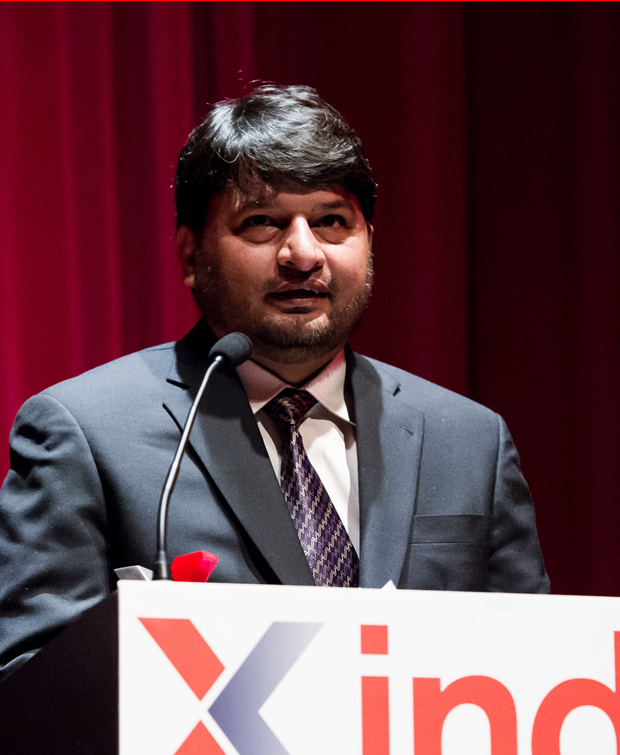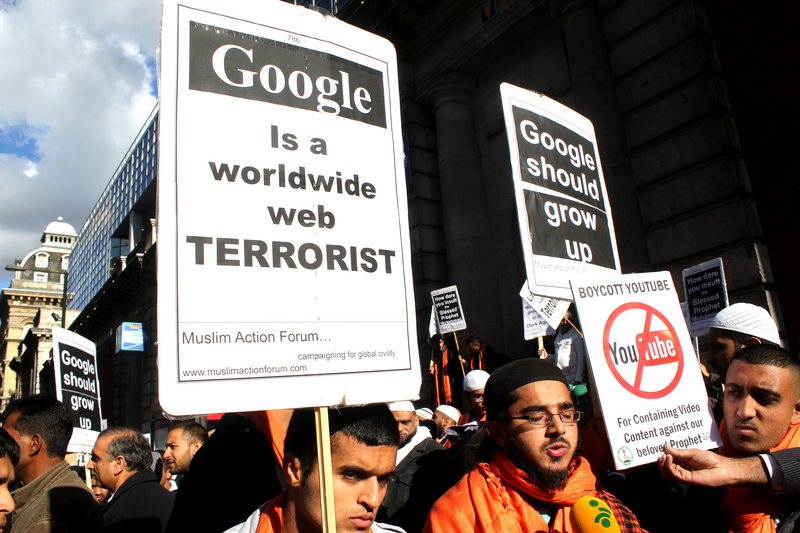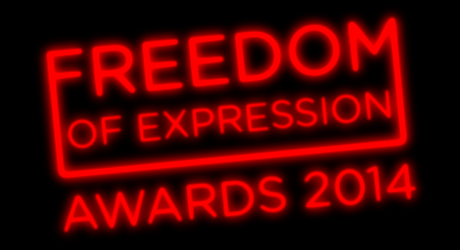27 Feb 2014 | Greece
 Six people, including a member of Greece’s Secret Services, have been indicted for an alleged assassination attempt on HotDoc editor Kostas Vaxevanis, according to reports. Vaxevanis, who won a Guardian/Index on Censorship Free Expression Award in 2013, has faced pressure from Greek authorities since publishing the leaked “Lagarde list” of over 2,000 potential Greek tax dodgers holding money in Swiss bank accounts. The indictment relates to an incident on 9 September 2012 – a few days before the publication of the leaked list – when Vaxevanis raised the alert after encountering the men close to his home.
Six people, including a member of Greece’s Secret Services, have been indicted for an alleged assassination attempt on HotDoc editor Kostas Vaxevanis, according to reports. Vaxevanis, who won a Guardian/Index on Censorship Free Expression Award in 2013, has faced pressure from Greek authorities since publishing the leaked “Lagarde list” of over 2,000 potential Greek tax dodgers holding money in Swiss bank accounts. The indictment relates to an incident on 9 September 2012 – a few days before the publication of the leaked list – when Vaxevanis raised the alert after encountering the men close to his home.
Read the full story here
27 Feb 2014 | Awards, News and features, Pakistan

Shahzad Ahmad accepting his award (Photo: Alex Brenner for Index on Censorship)
Index Freedom of Expression Awards: Advocacy nominee Shahzad Ahmad from IndexOnCensorshipTV on Vimeo.
Shahzad Ahmad is one of the leading voices in the fight against online censorship in Pakistan. The country faces a deteriorating state of cyber freedom, as the government uses draconian censorship laws and increasing surveillance to police the internet.
Ahmad is country director of Bytes4All. The group campaigns for internet rights and democracy by building capacity for human rights defenders, as well as advocacy and awareness-raising.
Ahmad and Bytes4All have sued the Pakistani government over the suspected use of surveillance software, FinFisher – a piece of software that infects a computer and takes full control of it, intercepting Skype calls and allowing every keystroke the user types to be sent across the internet to another computer. Developed by UK-based company Gamma International, it has been used to target activists in Bahrain amongst other countries. He is also suing the government over its ongoing blocking of YouTube which deprives the country of one of the world’s most popular video channels.
Nominees: Advocacy | Arts | Digital Activism | Journalism
Join us 20 March 2014 at the Barbican Centre for the Freedom of Expression Awards
In a recent article, Shahzad wrote: “We want to be a proud democracy, so we need to uphold democratic principles and for that we want Pakistan to be tolerant and moderate. But Government oppression is rising day by day. Censorship happens because of moral policing, corruption and because the authorities do not want to be transparent. They don’t want to give citizens freedom of information or permission to question them.”
This article was posted on March 3, 2014 at indexoncensorship.org
27 Feb 2014 | News and features

The Innocence of Muslims is truly the free speech story that keeps on giving. The crude, cheaply made anti-Islam film sparked international outrage when it first appeared on YouTube in September 2012, with even President Obama forced to weigh into the debate after the US Embassy in Cairo issued a tweet “condemning” the video. While ostensibly supporting free speech, the White House did suggest that Google should examine whether the video contravened its own terms of service.
Google eventually blocked the video of its own accord in Libya and Egypt. Meanwhile, in its move to censor the film, Pakistan simply blocked the whole of YouTube.
Now, a US court has ruled that Google should remove the video from YouTube. Not because of blasphemy, but because of copyright. The case against Google and the makers of the film was brought by actress Cindy Lee Garcia, who appears in the film for all of five seconds. Garcia claims that her single line, suggesting that Muhammad was a “child molester” was dubbed, and that she was duped into appearing in the anti-Muslim film, having been told it was a trailer for an adventure movie.
Crucially, she also says that she has a claim to the copyright of the film. The Ninth Circuit Court of Appeals agreed that she may have a claim, and on 19 February ordered Google to remove the film from its YouTube service.
The court further ordered that the ruling be kept secret until 26 February, when the 37-page opinion on the case was issued “to prevent a rush to copy and proliferate the film before Google can comply with the order.”
Google has said it will appeal the order, saying that not only could the copyright claim of a bit-part actor create havoc for filmmakers of the future, but that service providers could now also be swamped with takedown requests from people who regret appearing in works in the public domain.
Interestingly, it also suggests that the simple removal of the video could constitute a tampering with the historical record. That chimes with an argument Index has made before – we seem far more comfortable with the removal of web content than we do with, say, the pulping of books, even though the intent is the same.
As things stand, Google has complied with the order, and the Innocence of Muslims can no longer be found on YouTube.
In yet another twist, Pakistani web freedom campaigner and Index on Censorship award nominee Shahzad Ahmed has used the removal of the video to pressure his government to lift the YouTube ban.
“We think that now the government of Pakistan has been left with no excuse to continue blocking access to YouTube,” he is reported as saying. “But the ban on YouTube has got more to do with the government’s desires and efforts to impose censorship, content filtering and moral policing and we are fighting against them in court through a constitutional petition.”
This article was posted on February 27, 2014 at indexoncensorship.org
27 Feb 2014 | Awards, Burma, News and features
Generation Wave has been at the forefront of promoting democratic engagement in Burma, using hip hop, graffiti, film and street art to challenge authoritarianism since 2007 – with a strict policy of non-violence.
The organisation grew out of what became known as the Saffron Revolution – the 2007 protests led by saffron robed monks, which were violently put down by the Burmese military. For four years, the group was outlawed and had to operate underground.
These days, as Burma’s military has relaxed its grip on the country and started the transition to democracy, Generation Wave focuses on direct political activities and political capacity building among youth in the country, and the group has celebrated its last two anniversaries with public events.

Nominees: Advocacy | Arts | Digital Activism | Journalism
Join us 20 March 2014 at the Barbican Centre for the Freedom of Expression Awards
However, the transition is still very much a work in progress. While there have been steps in the right direction, the political situation in Burma remains uncertain and activists like Generation Wave still face challenges. Over 20 members are former political prisoners. A number were released in 2012 as part of a mass presidential pardon, but several face ongoing charges, including co-founder and current president Moe Thway, who has appeared in court more than 130 times.
In 2013 Generation Wave sought official recognition as an institute in order to be able to carry out their activities in the clear light of day, but doing this is less straightforward than it might seem. “Our aim is to register as an organisation, because we don’t want to be an illegal organisation – but during the [registration] process I was told to promise that I wouldn’t work with politics. But that is impossible, because all of our work is concerned with politics,” general director Min Yan Naing said.
This article was posted on February 27, 2014 at indexoncensorship.org
 Six people, including a member of Greece’s Secret Services, have been indicted for an alleged assassination attempt on HotDoc editor Kostas Vaxevanis, according to reports. Vaxevanis, who won a Guardian/Index on Censorship Free Expression Award in 2013, has faced pressure from Greek authorities since publishing the leaked “Lagarde list” of over 2,000 potential Greek tax dodgers holding money in Swiss bank accounts. The indictment relates to an incident on 9 September 2012 – a few days before the publication of the leaked list – when Vaxevanis raised the alert after encountering the men close to his home.
Six people, including a member of Greece’s Secret Services, have been indicted for an alleged assassination attempt on HotDoc editor Kostas Vaxevanis, according to reports. Vaxevanis, who won a Guardian/Index on Censorship Free Expression Award in 2013, has faced pressure from Greek authorities since publishing the leaked “Lagarde list” of over 2,000 potential Greek tax dodgers holding money in Swiss bank accounts. The indictment relates to an incident on 9 September 2012 – a few days before the publication of the leaked list – when Vaxevanis raised the alert after encountering the men close to his home.


